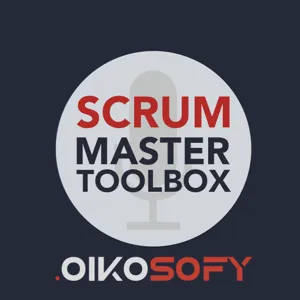Podcast Summary
Designing a custom ring online and purchasing outdoor furniture with discounts: Consider convenience and quality when making important decisions, such as designing a custom ring online or purchasing outdoor furniture with discounts.
When it comes to making important decisions, such as buying a unique engagement ring or hiring a professional for your business, convenience and quality should be top priorities. At bloonile.com, you can design a custom ring online and have it delivered to your door. Burrow's outdoor furniture is built to withstand the elements and can be purchased with discounts during promotions. LinkedIn is a valuable resource for hiring professionals, including those who aren't actively looking for a new job. Scotland's made to be measured campaign aims to increase awareness of alcohol units. Countries that use other currencies have to run a surplus and cannot borrow. Blair MacDougall, former chief executive of the Better Together campaign, shares his experience of taking on the role. It's essential to consider the strengths and weaknesses of campaigns, and the uncertainties and disruptions they bring. In politics, responsibility and a sense of duty can sometimes lead individuals to take on important roles, even if it doesn't feel like a calling.
The 'no' side's unexpected win in the Scottish independence referendum: Effective collaboration among key advisors and strategists was crucial for the 'no' side's success in the Scottish independence referendum, despite internal challenges and contrasting campaign experiences.
The Scottish independence referendum campaign of 2014 was a complex and challenging political moment for those on the "no" side, who unexpectedly emerged as winners, despite not viewing national identity as a core issue. This experience was contrasted by those on the "yes" side, who saw their campaign as a defining moment in their lives and a chance to offer change while maintaining continuity. The challenge for the "no" side was to unite various political parties under a common purpose, leading to a difficult internal management structure. Ultimately, the success of the campaign rested on the ability of key advisors and strategists to work together effectively. The campaign's strategic landscape required both sides to offer both continuity and change to win over voters.
Effective collaboration during Scottish independence referendum campaign: Focusing on the right audience and making strategic decisions led to the success of the Scottish independence referendum campaign, despite internal tensions and criticism.
During the Scottish independence referendum campaign, the sense of personal responsibility and consequences at the strategic level among team members contributed to their effective collaboration. However, internally, there was tension due to the deliberate focus on reaching voters who didn't share the same bonds and identity as the campaign's internal coalition. Navigating relationships with various party leaders and managing internal disintegration were challenges, but a well-evidenced strategy protected the team. The campaign's success came from focusing on the right audience and making decisions based on strategic reasons, rather than making the internal coalition feel good about the campaign. The external criticism and "friendly fire" were signs of the campaign's focus on reaching the right voters.
Collaboration and Understanding Among Political Adversaries During Scottish Referendum Campaign: During the Scottish independence referendum campaign, political adversaries worked together, fostering a deeper understanding of each other's perspectives, making effective communication with undecided voters and soft Yes voters easier.
During the Scottish independence referendum campaign, despite the deep-rooted political differences among the major parties, there was a strong sense of collaboration and understanding among the key players. Alastair Darling, a Labour politician, was a standout performer for the Better Together campaign due to his ability to convey the gravity and seriousness of the decision at hand. The intense working relationship between political adversaries during the campaign helped politicians better understand the perspectives of undecided voters and soft Yes voters, making it easier to communicate effectively with them. The experience of working together during the campaign may have set a precedent for the importance of collaboration and understanding in addressing the major societal issues of our time, as we move beyond the divisive political climate of the past decade.
Scotland's Irreversible Decision to Leave the UK and Economic Arguments: Scotland's decision to leave the UK is irreversible and economic arguments, particularly around currency, were key to the campaign's success.
Scotland's decision to leave the United Kingdom is irreversible, and Scotland will get the government it votes for in every election. While Scotland will gain substantial powers over taxes and housing benefits, it also maintains the advantages and securities of being part of the UK. The campaign team, led by a small group of dedicated individuals, kept the focus on economic arguments, particularly around currency, which resonated with the public and became a major point of contention. The team's ability to maintain strategic focus amidst a smorgasbord of issues was crucial to the campaign's success. Currency, which was a creation of the campaign rather than an existing concern, became a tangible example of the economic risks of leaving the UK. The team's research showed that people had a strong sense of the economic risks of leaving, but found it difficult to pinpoint a tangible example. The Yes campaign's discomfort around the issue of currency provided the team with a clear signal to focus on this area.
Handing opponents a veto on economic arguments can be harmful: Understanding undecided voters' concerns and addressing them effectively is crucial for successful political campaigns.
Key takeaway from Blair MacDougall's discussion about the Scottish independence referendum campaign is that handing your opponents a veto on a key economic argument can be detrimental. The US campaign in 2014 proposed keeping the pound, but this was not within their control, leading to constant questioning and doubts about their economic viability. In contrast, the Scottish independence campaign had a clear strategy to reassure voters on economic viability, discuss the benefits of independence, and criticize the Tories. However, the economic questions were the crux of the campaign for undecided voters, and the campaign's attempts to move past these questions were unsuccessful. This revealed a psychological difference between the campaign and the voters they needed to win over. Overall, it's essential for political campaigns to understand the key concerns of undecided voters and address them effectively to increase their chances of success.
Scotland's Political Landscape Changed Since First Referendum: In a potential second Scottish independence referendum, economic arguments may still be relevant but campaign structures and messaging would change. The EU's role as a framework for continuity is gone, and both sides must address the challenges of Holyrood's newfound power. The campaign would need to focus on unity and using Brexit as a cautionary tale.
The political landscape in Scotland following the first independence referendum has changed significantly, making it unlikely for the same campaign to be effective in a potential second referendum. The Conservatives and Labour parties have lost key figures and are currently in a weaker state compared to before the referendum. The economic argument, which was central in the first referendum, would still be relevant but the campaign structure would look different. The EU's role as a framework for continuity is no longer present, and the Scottish Government has already delivered many of the promises of independence within the UK. Additionally, the enormous power that Holyrood now holds presents challenges for both sides. The nationalists would need to address the fact that many powers are already devolved, while the unionists would need to tell a stronger story about the benefits of remaining part of the UK. The campaign would also need to be more about bringing together people from civil society and using Brexit as a cautionary tale.
Scottish independence referendum: A turning point for Scotland and the UK: Opinion polls shifted power towards independence, making it a real decision with consequences, leading to a vow for new powers from UK leaders
The 2014 Scottish independence referendum was a turning point, not just for Scotland, but for the UK as a whole. Opinion polls indicated a shift in power towards Hollywood, making it harder for those against independence to identify grievances. The polls also made the issue real for voters, moving it from a hypothetical protest vote to a decision with real consequences. The vow made by David Cameron, Ed Miliband, and Nick Clegg to give new powers to the Scottish Parliament was a response to this shift and is still a significant point of reference today. The speaker, Blair McDougall, reflects on these events, sharing personal experiences and emphasizing the importance of acknowledging the reality and consequences of political decisions.
SNP's Vow during Scottish independence referendum: A reset moment: The SNP's promise during the Scottish independence referendum, known as 'The Vow,' was a framing moment that reset their campaign narrative, emphasizing economic security and more decision-making in Scotland. Despite not moving many voters, it was a valuable lesson in debate preparation and audience behavior.
The Scottish National Party (SNP) leader Alex Salmond's promise, now known as the "Vow," during the Scottish independence referendum should not be viewed as a betrayal or a significant policy moment, but rather as a framing moment that allowed the SNP to reset their campaign narrative. The debates during the referendum were still new in politics, and the SNP drew lessons from the negotiations for the UK's first TV debates in 2010 and Obama's debate preparation. The Vow was an extension of the SNP's messaging, emphasizing economic security and more decision-making in Scotland. While it may not have moved many voters, it was useful as a reset moment for the SNP campaign, allowing them to continue the conversation they wanted to have. The debates were a relatively new phenomenon in politics, and the SNP learned valuable lessons about audience behavior and debate preparation.
The intensity and energy of a debate can change after a loss: Losing a debate can humble a person and make them perform better in the next one, but the personal cost can be high and may deter them from future debates.
The energy and preparation that goes into winning a debate can disappear after the first loss, leaving the loser determined to win the next one. This was observed in the Scottish independence campaign, where the person who won the first debate lost the second one due to a difference in feeling and energy during preparation. The winner, who initially came across as arrogant, was humbled by the loss and performed better in the second debate. Despite the intense and relentless nature of the campaign, the speaker would not do it again due to the personal cost of being involved in a binary contest about strongly felt identity. However, they are proud of Scotland being the only country in the world to reject a populist nationalist proposition during that period. There is currently no indication of a second independence referendum, as the SNP has shown a lack of interest in understanding why they lost and have not seriously addressed the case for a form of independence that involves deeper change.
SNP unlikely to call for another independence referendum soon: Despite shifting polls and voter sentiment, the SNP's hesitancy to push for another referendum due to lack of confidence in their nationalism is a significant factor preventing one from occurring.
That the Scottish National Party (SNP) is not seriously considering another independence referendum in the near future. Blair MacDougall, the former chief executive of the Better Together campaign during the 2014 referendum, expressed his belief that the SNP lacks confidence in their own nationalism and are not willing to make a strong case for it. This lack of confidence, according to MacDougall, will prevent another referendum from happening. Despite the possibility of shifting polls or voter sentiment, MacDougall believes that the SNP's hesitancy to push for another referendum is a significant factor in preventing one from occurring. This perspective was further supported by the guests on the podcast, who included a former strategist for Yes Scotland and a former policy adviser to Alex Salmond, as well as the leader of Scottish Labor during the independence referendum.





